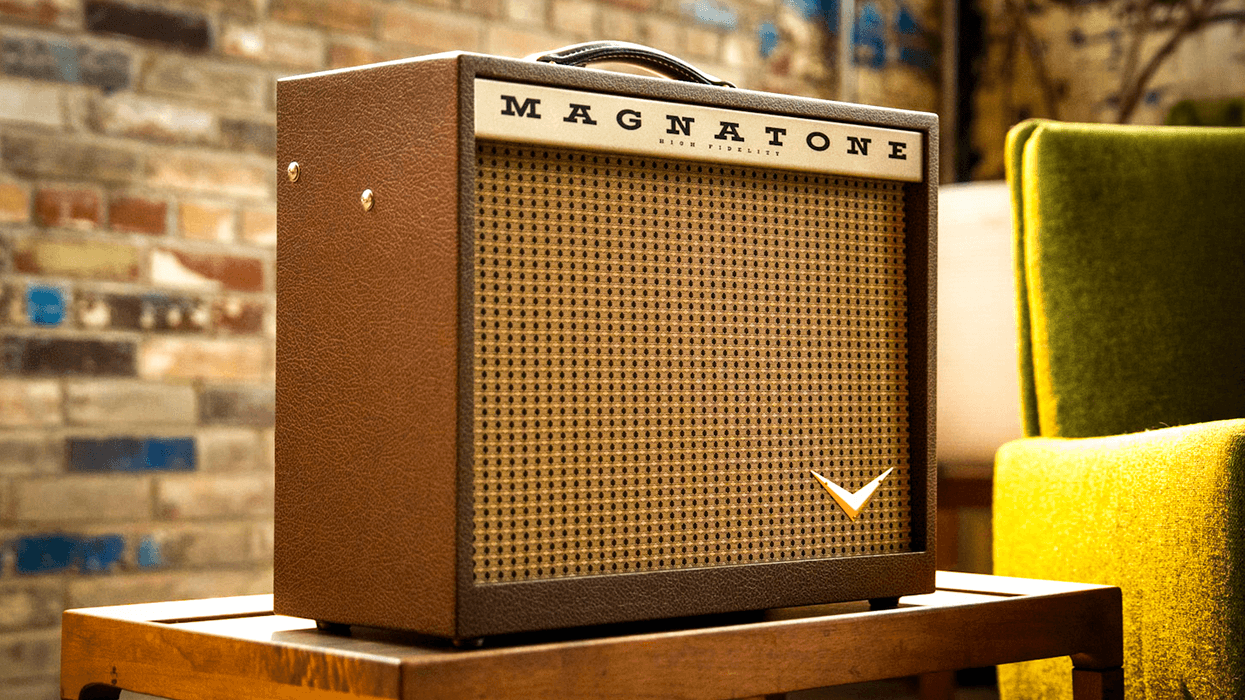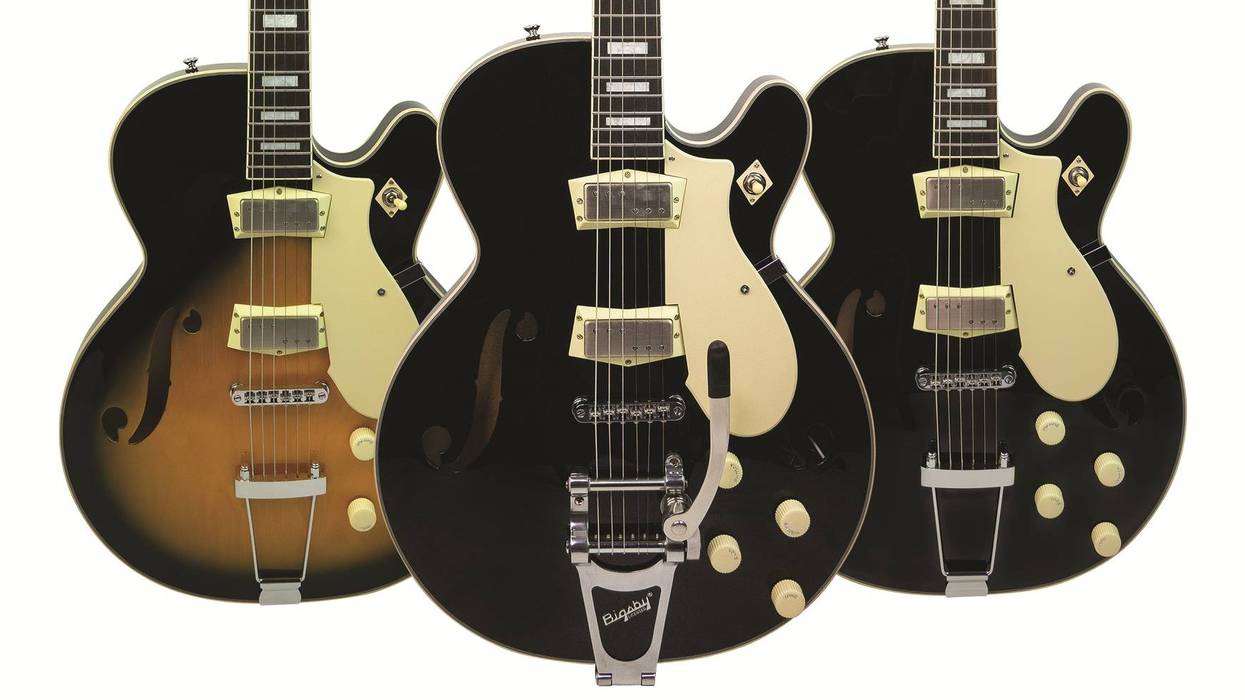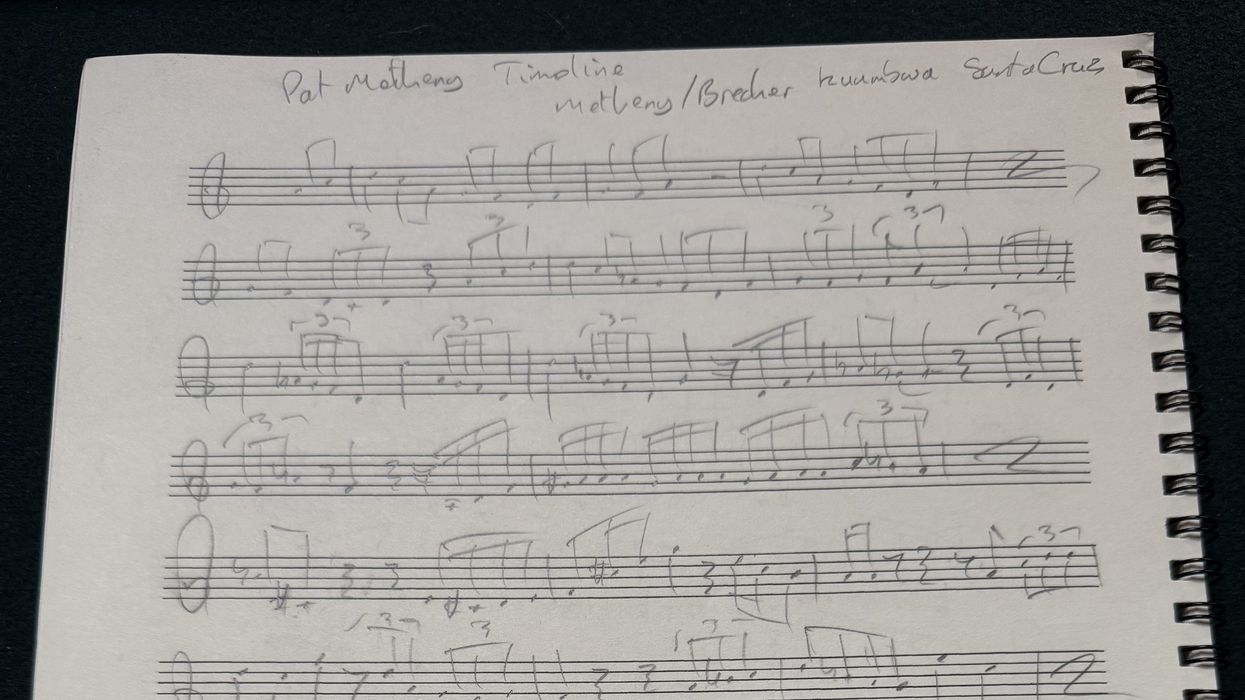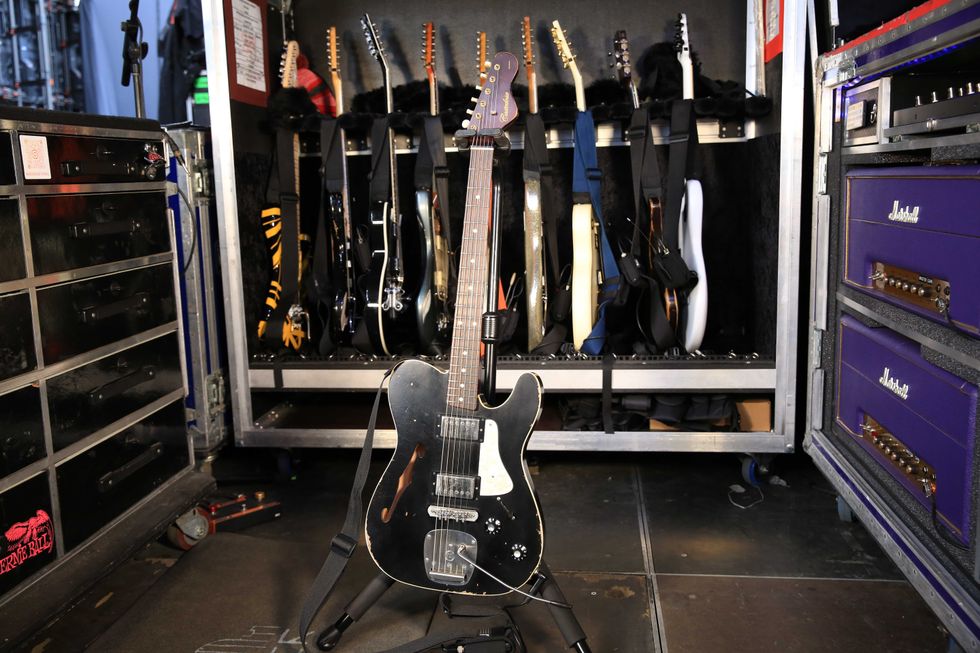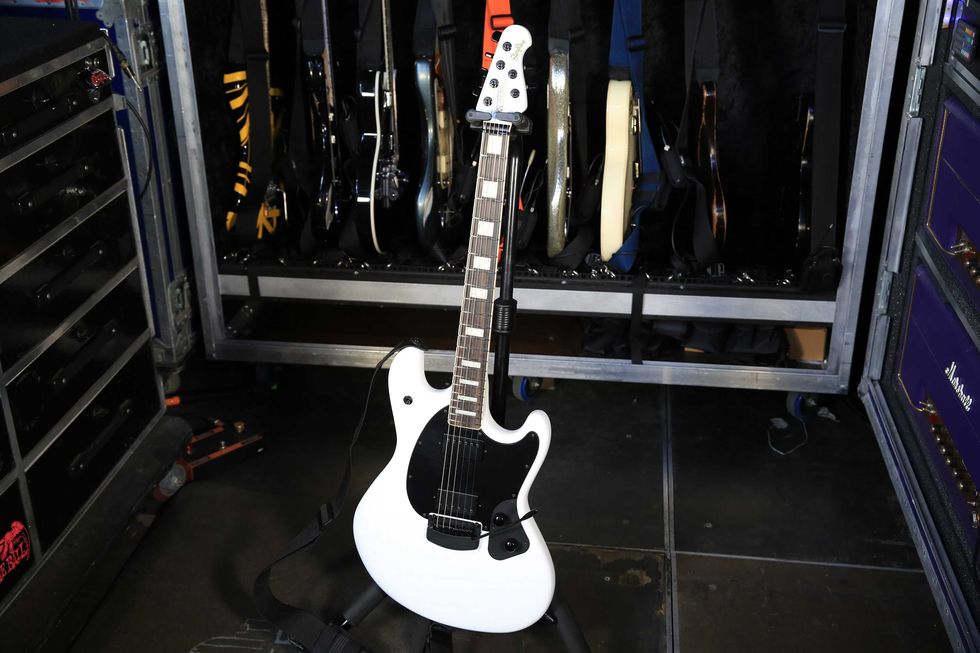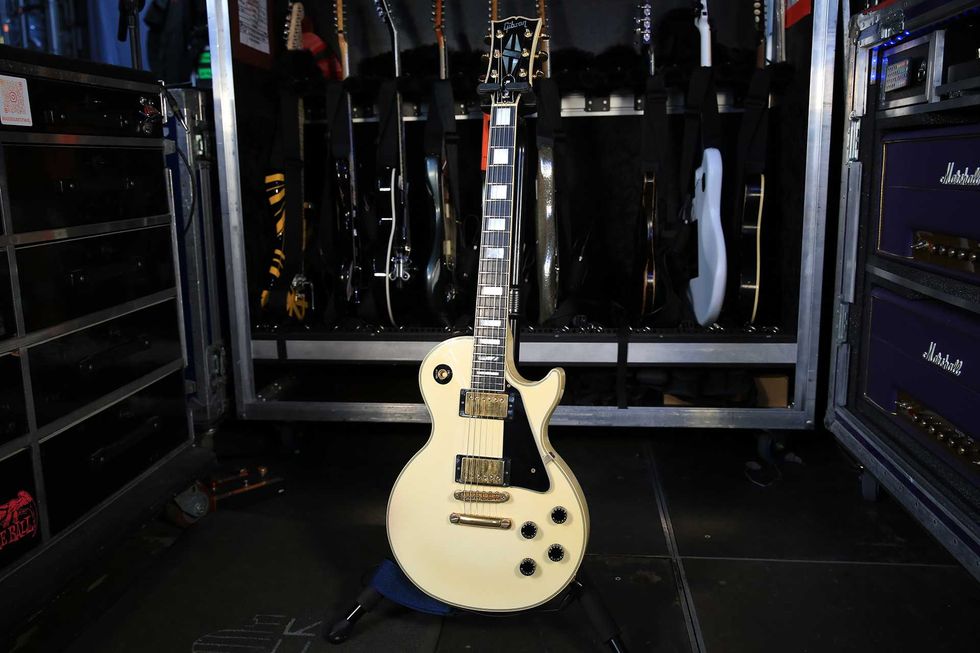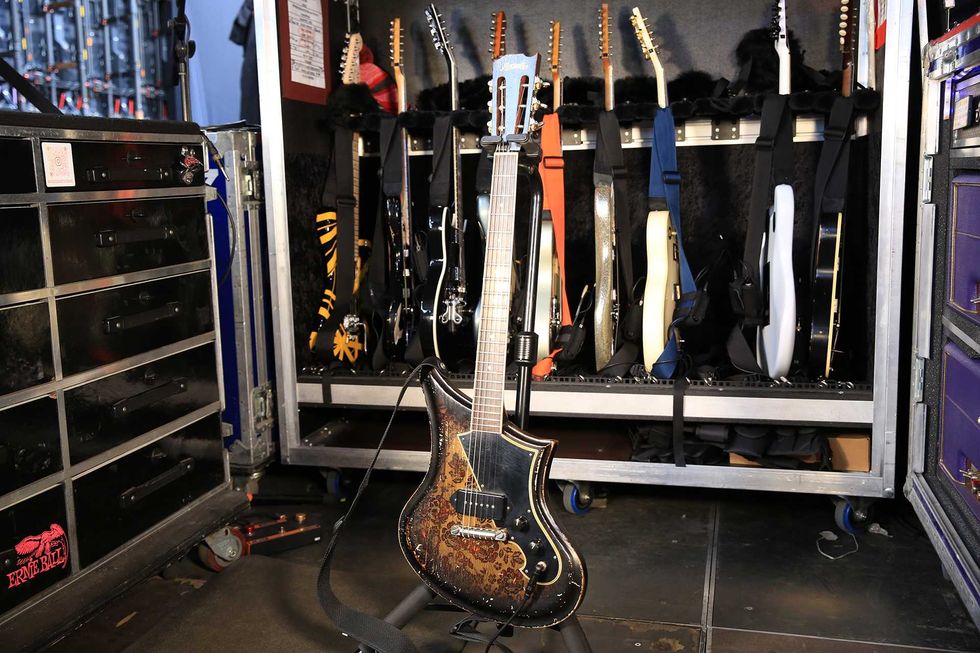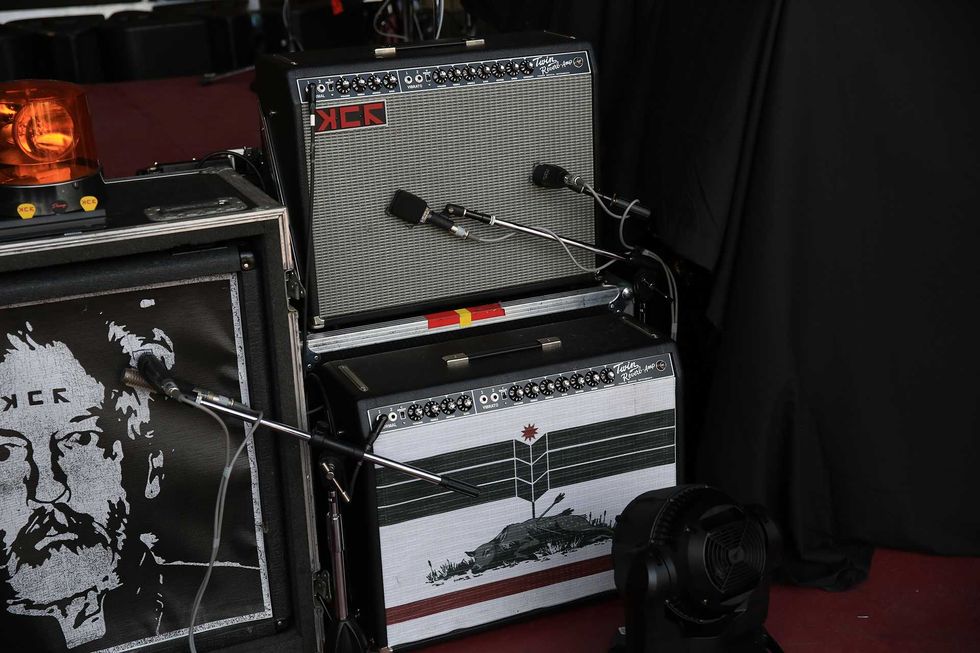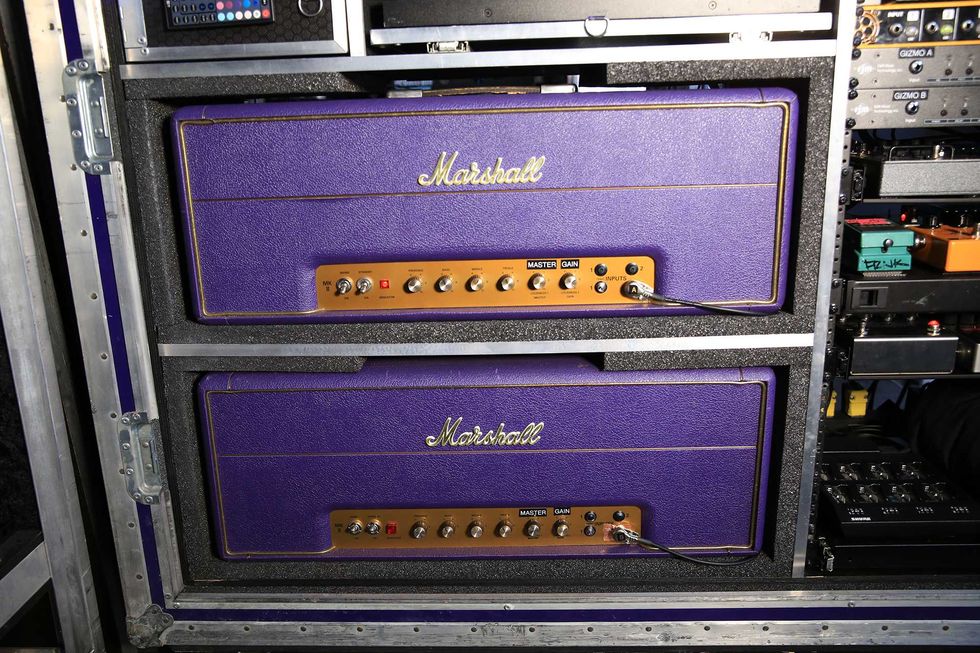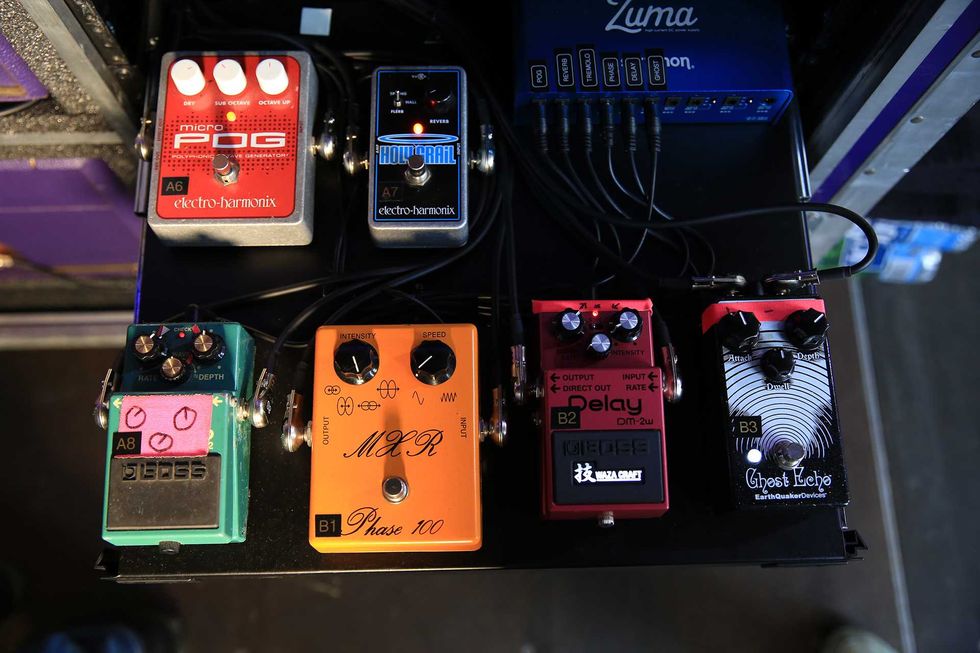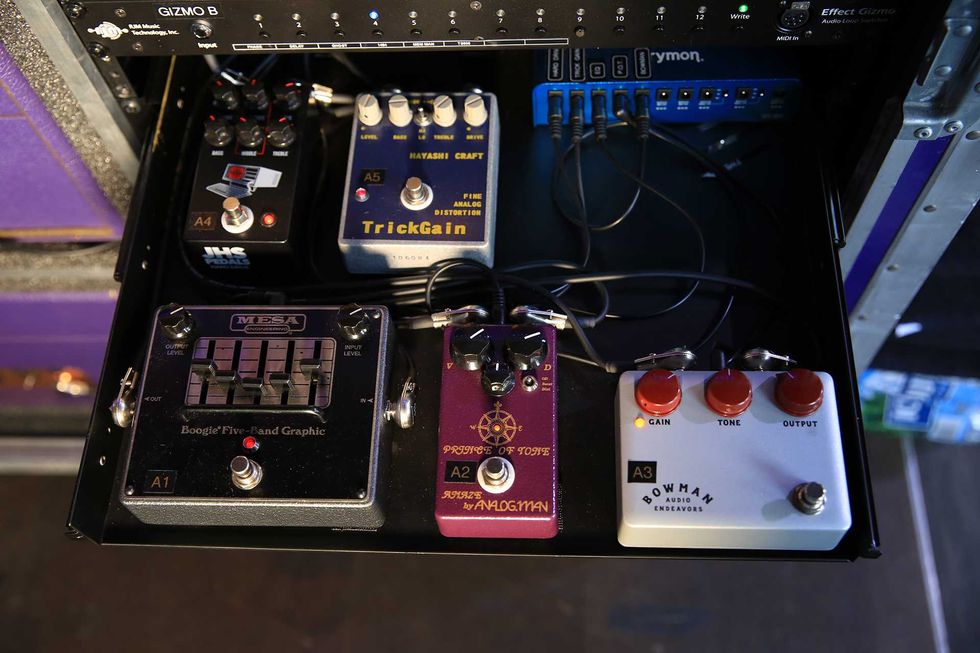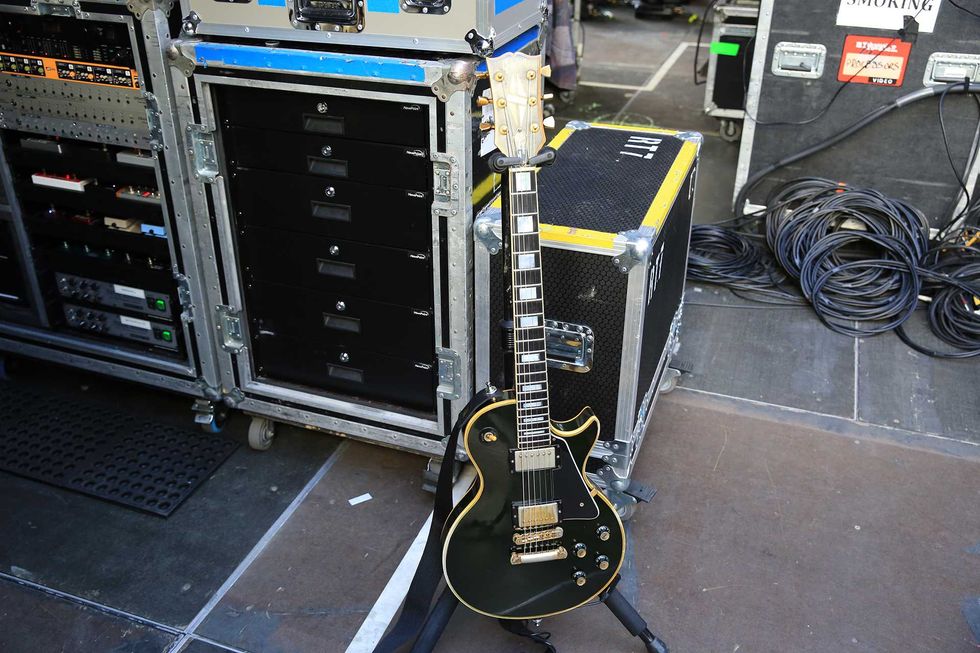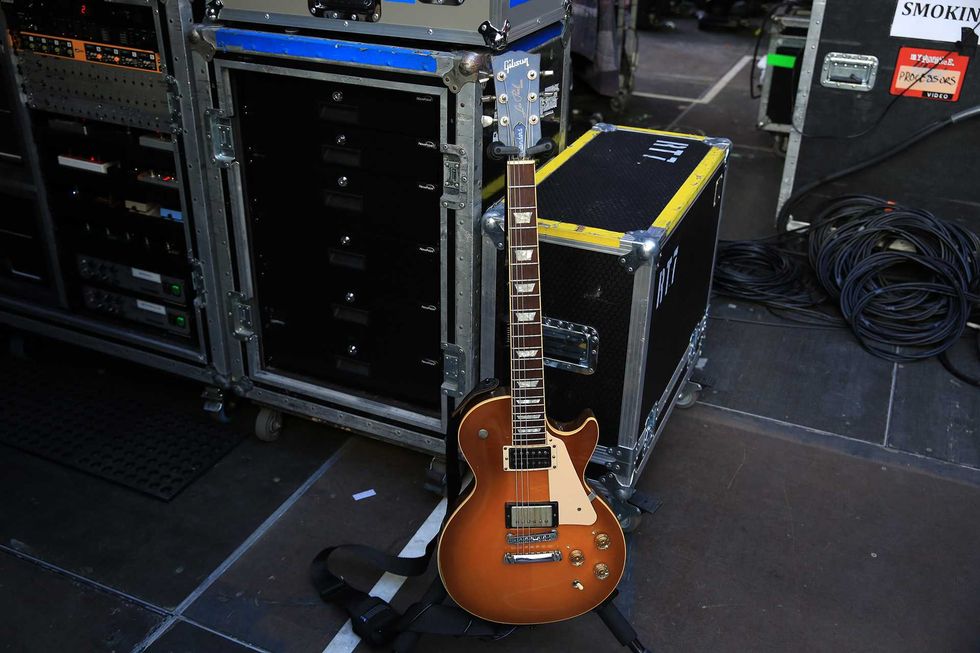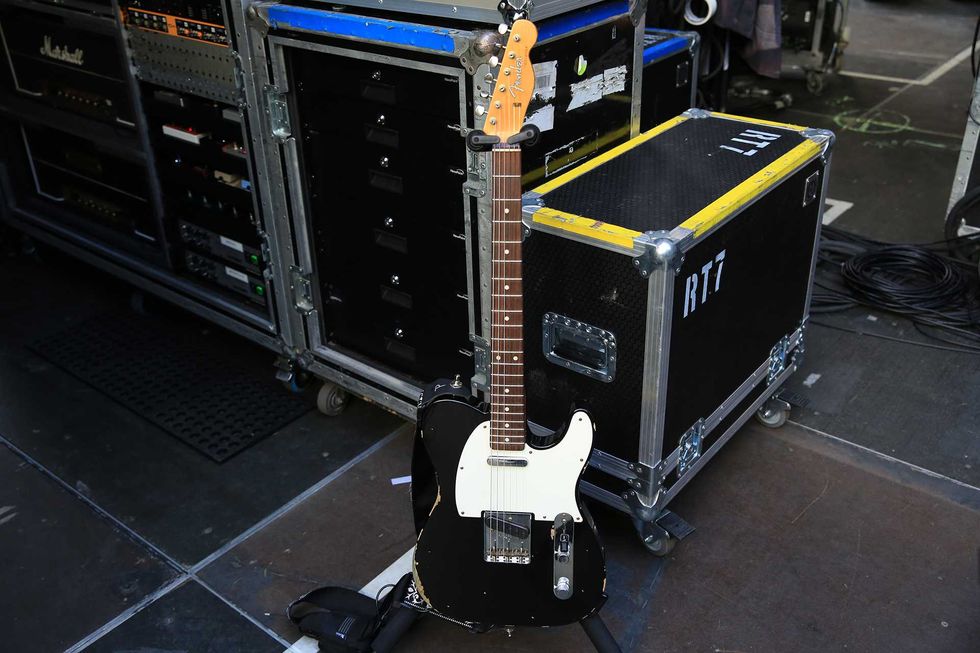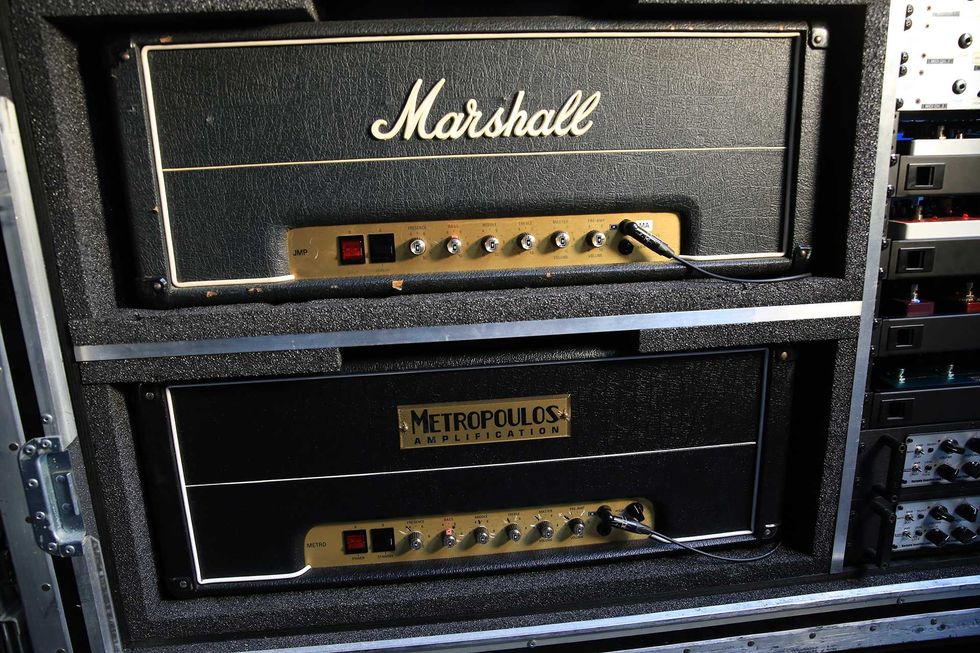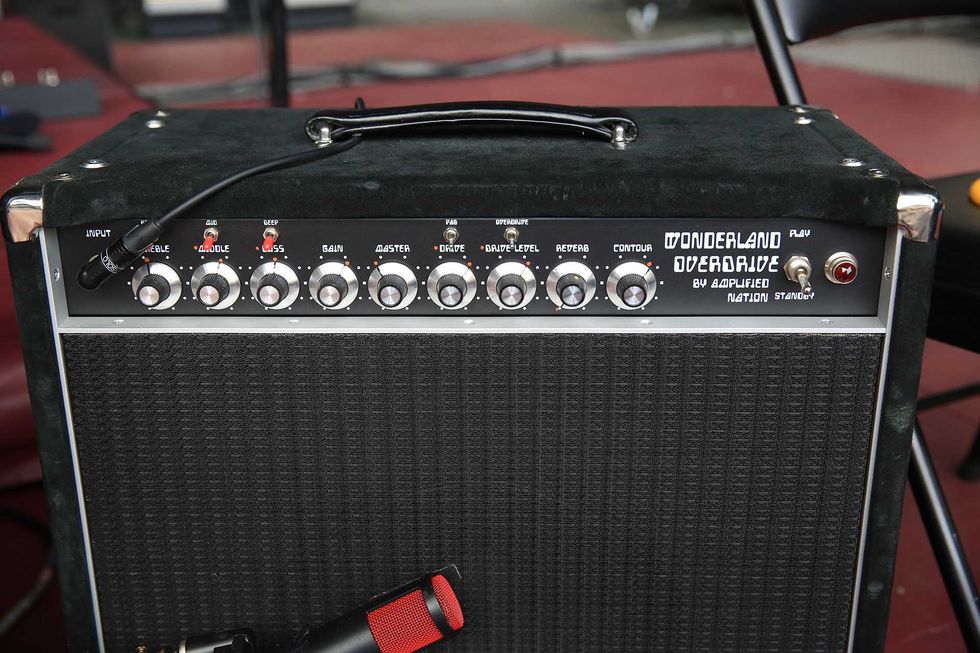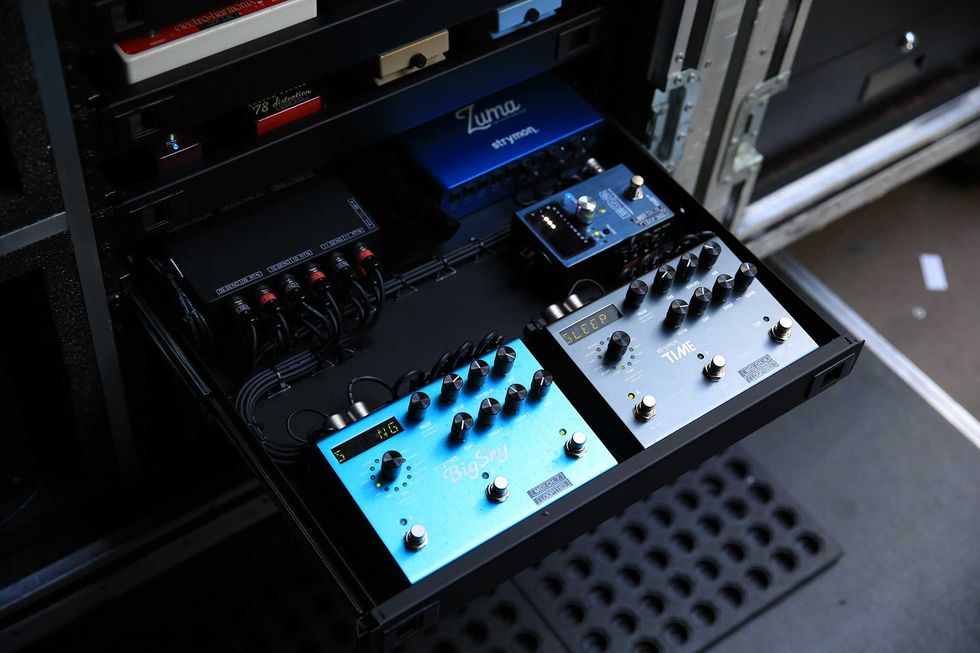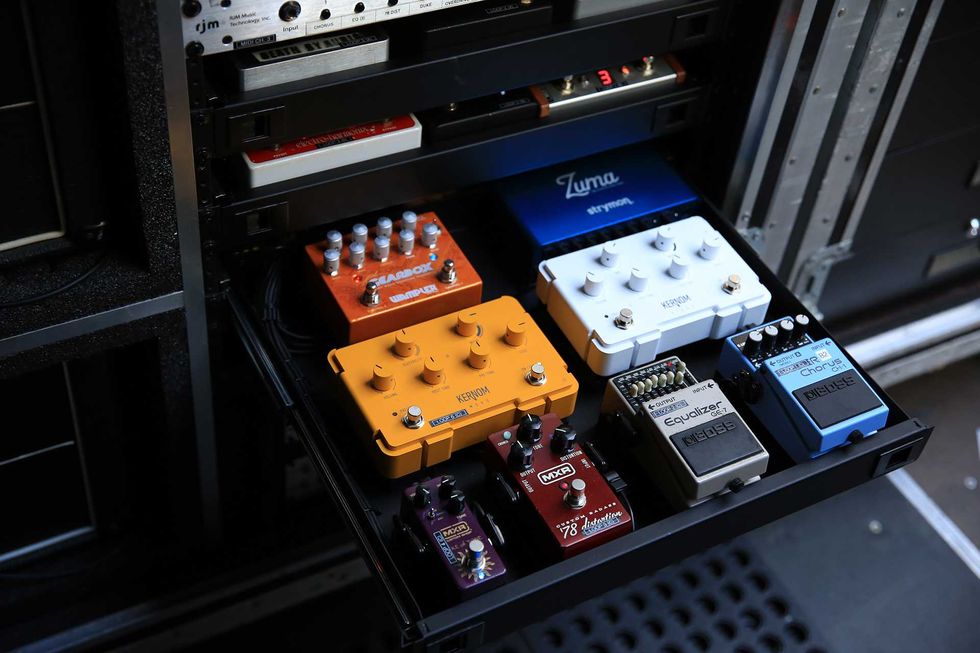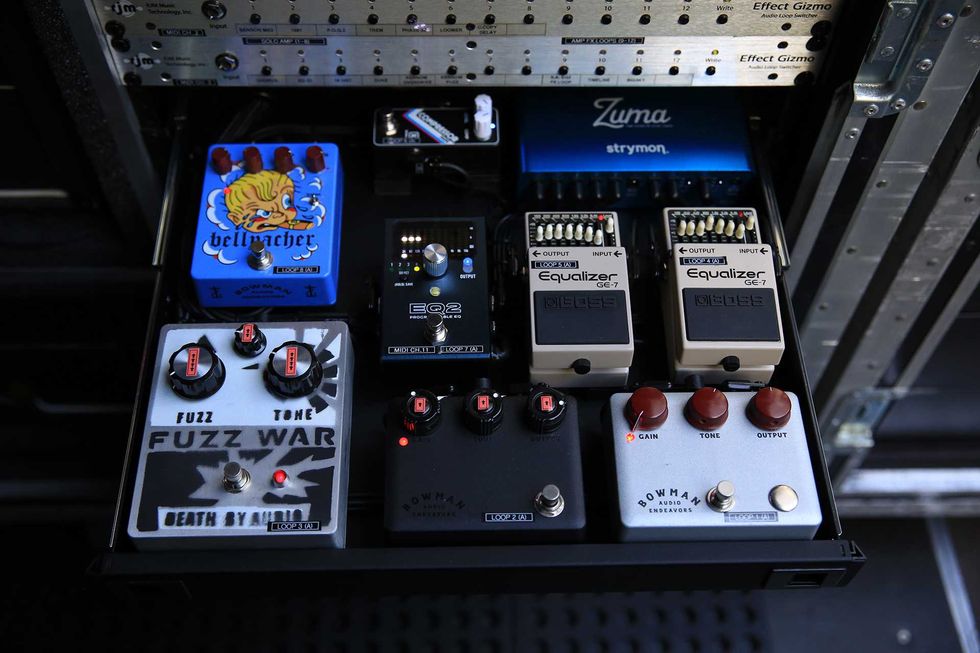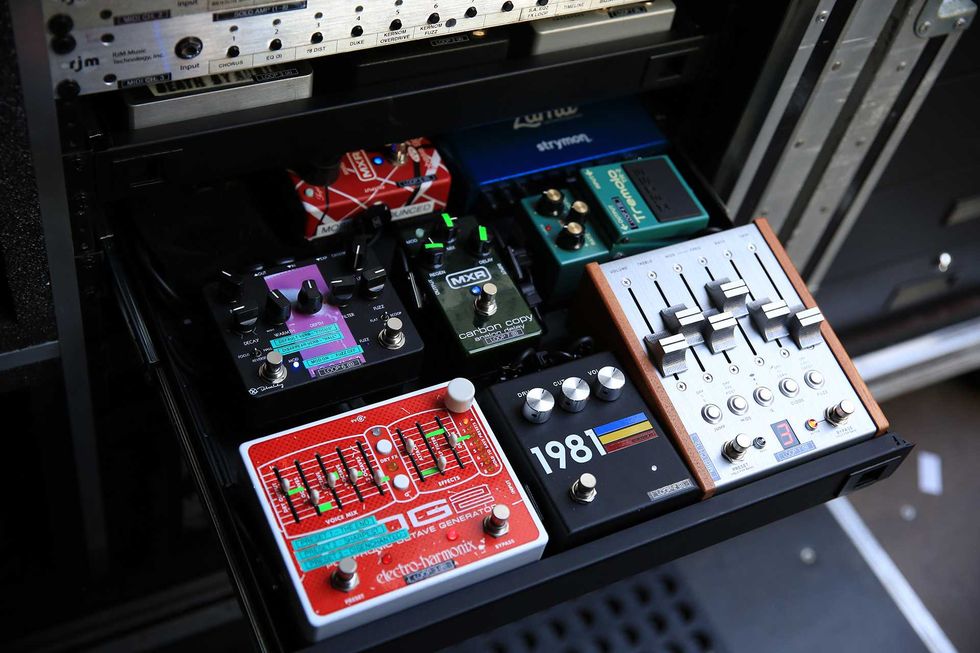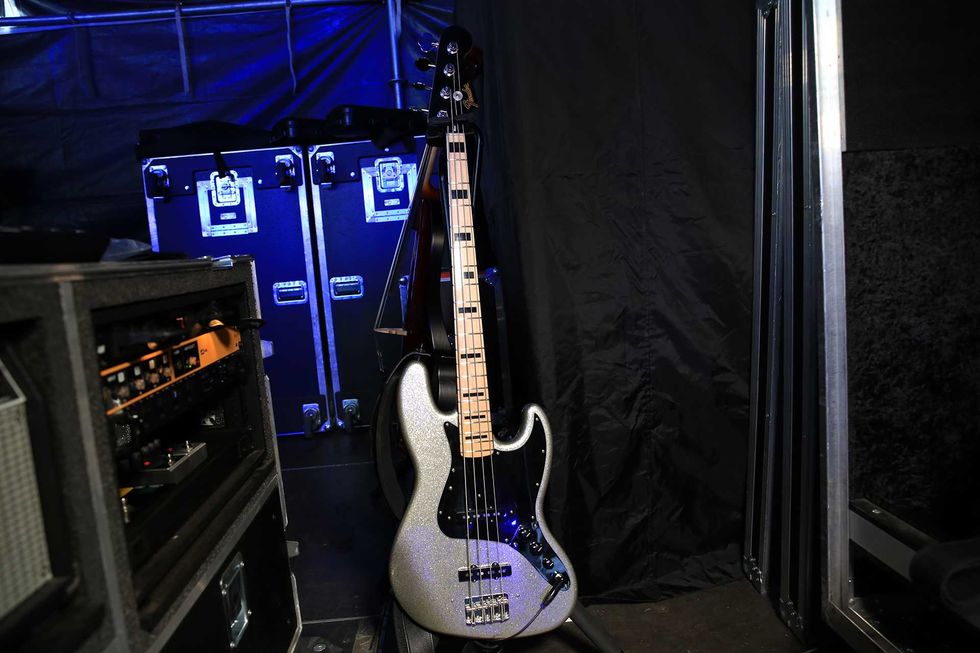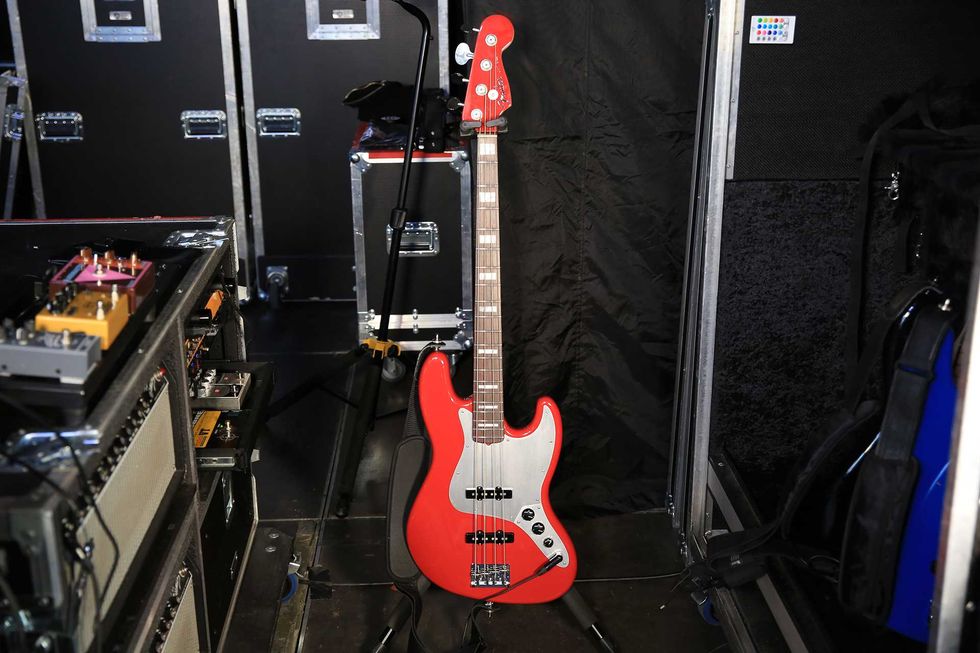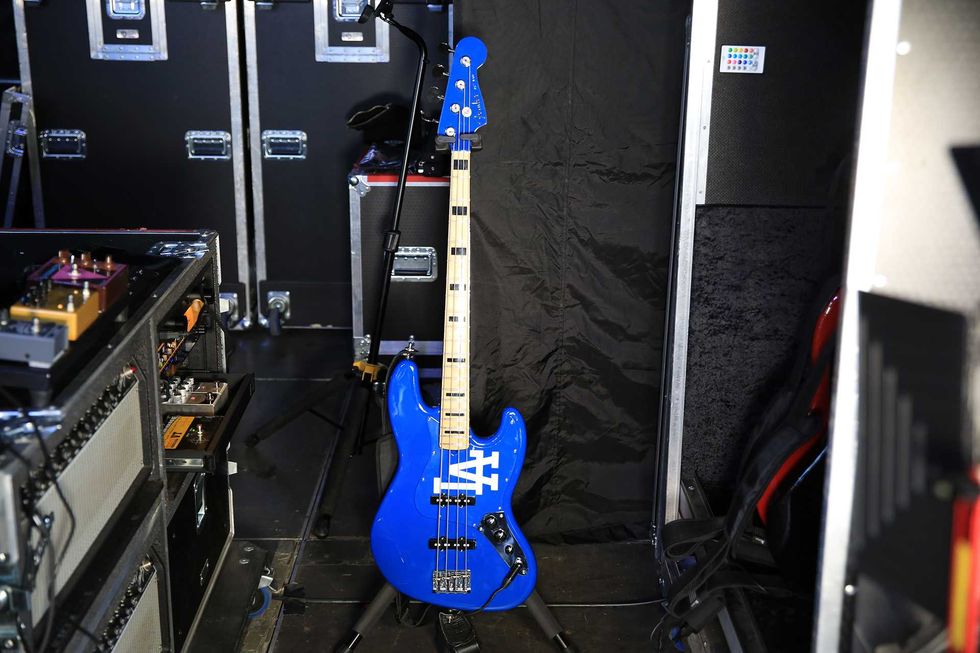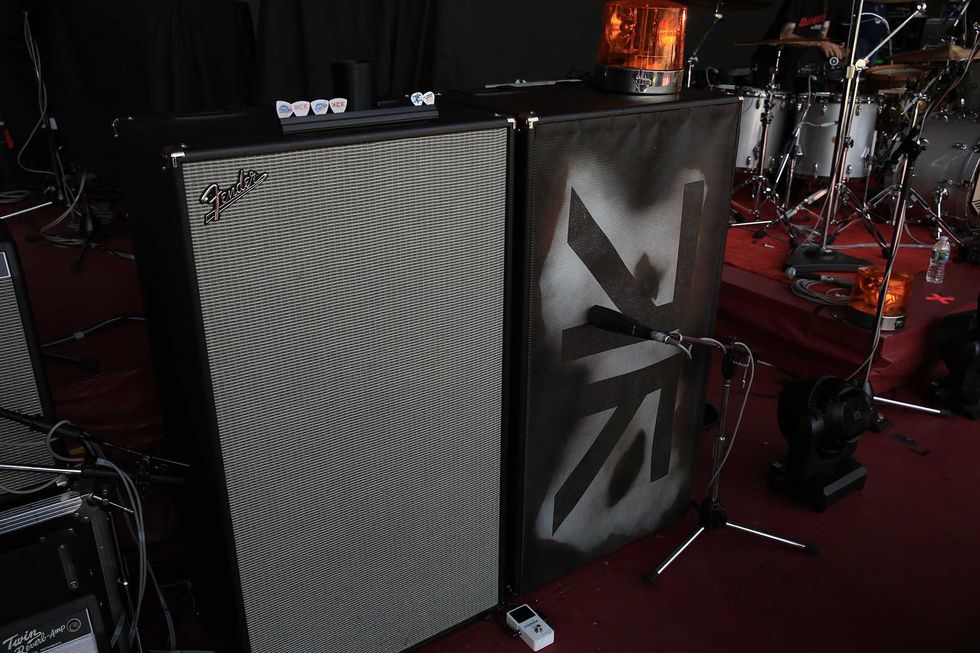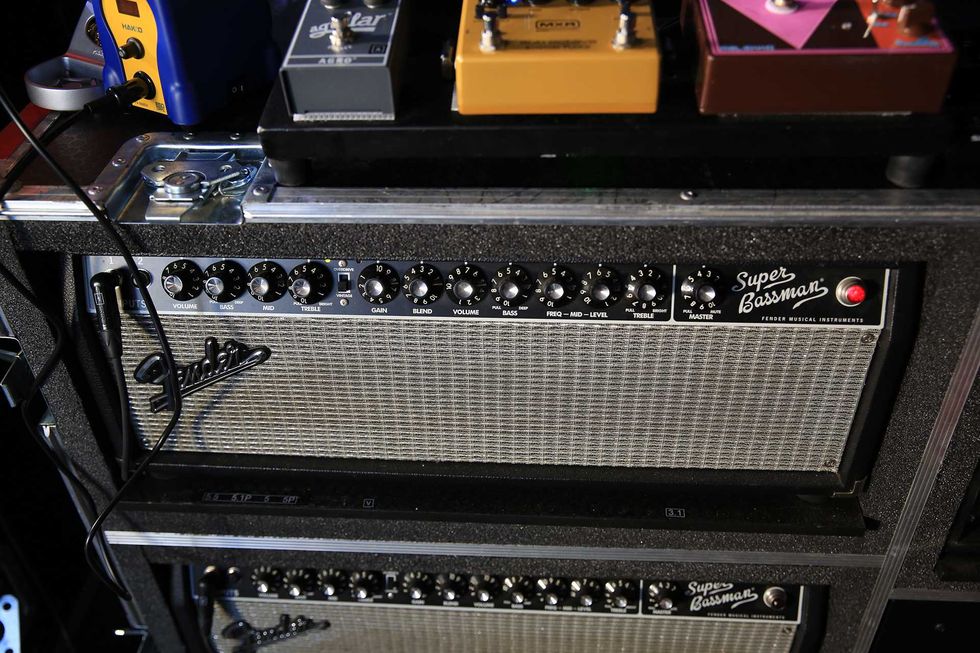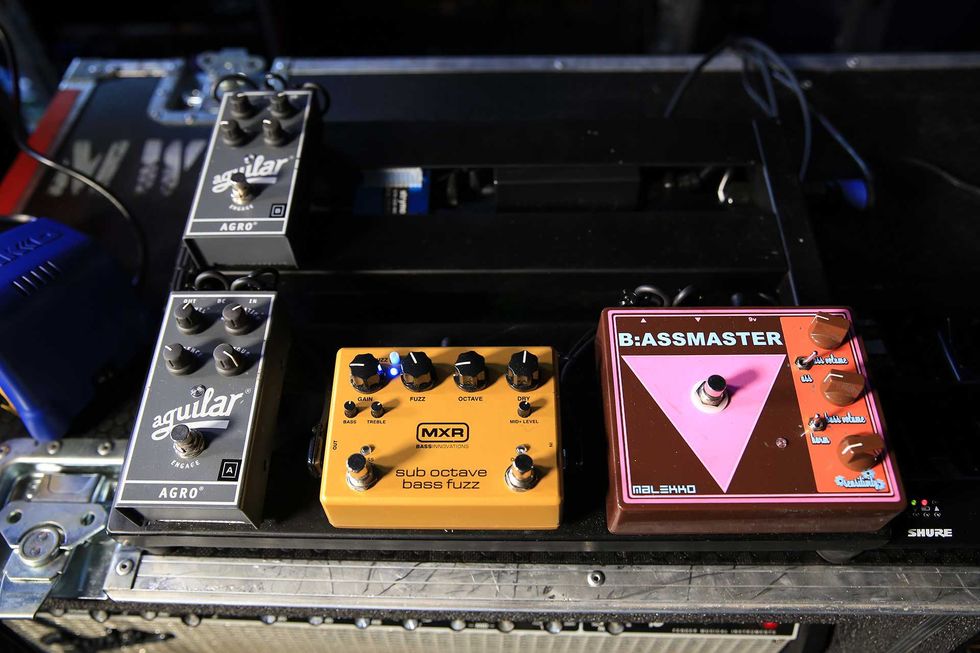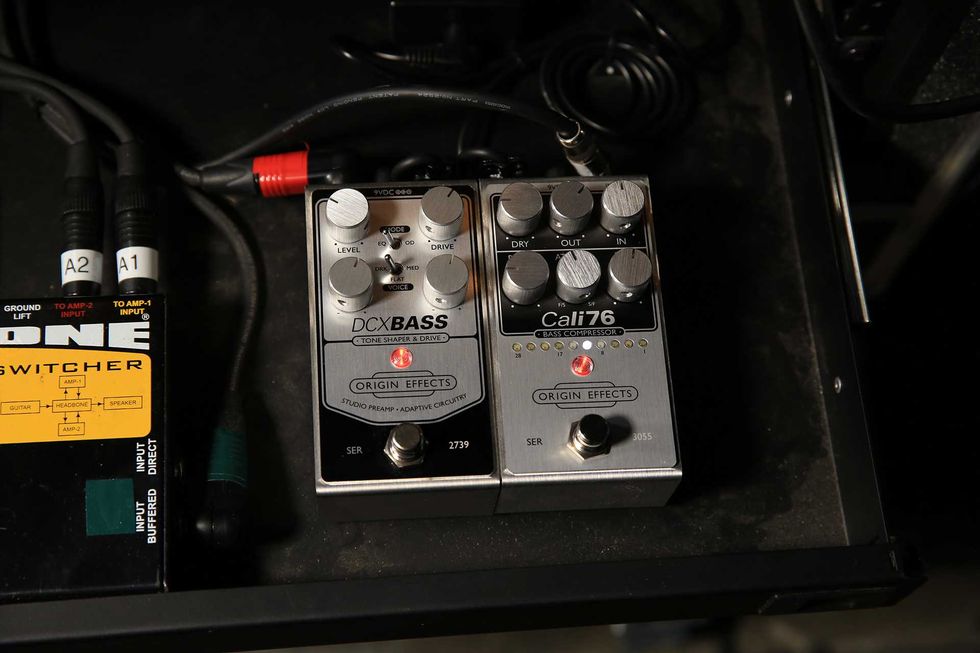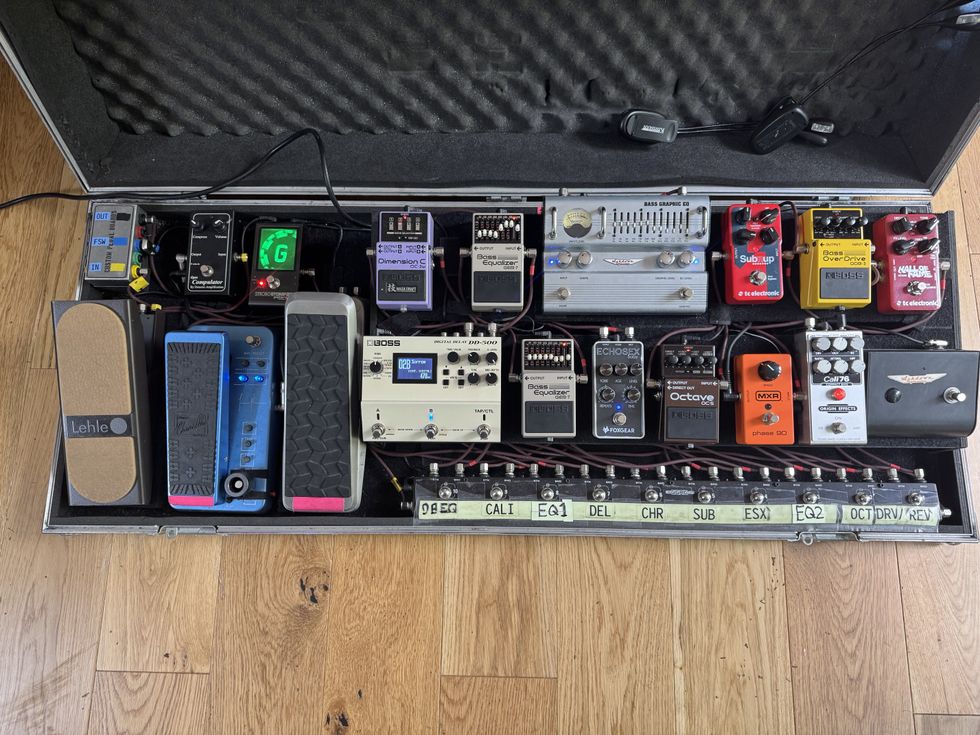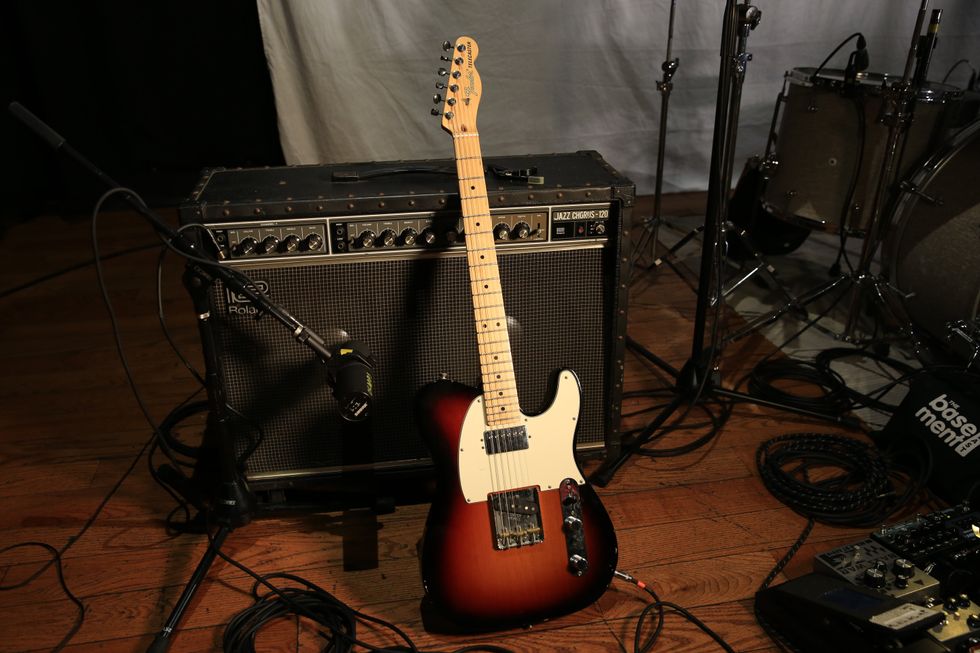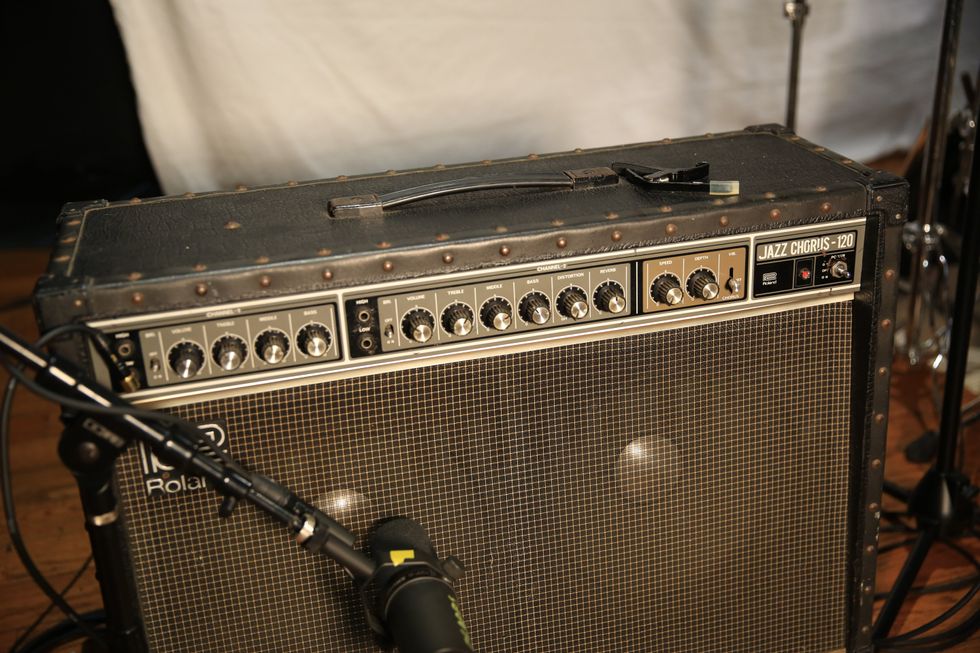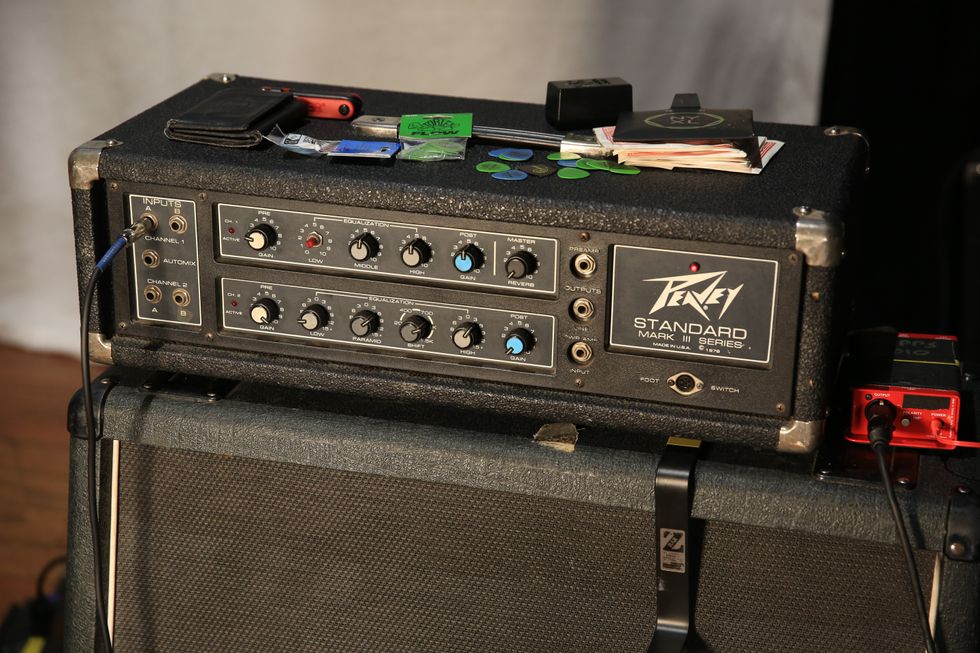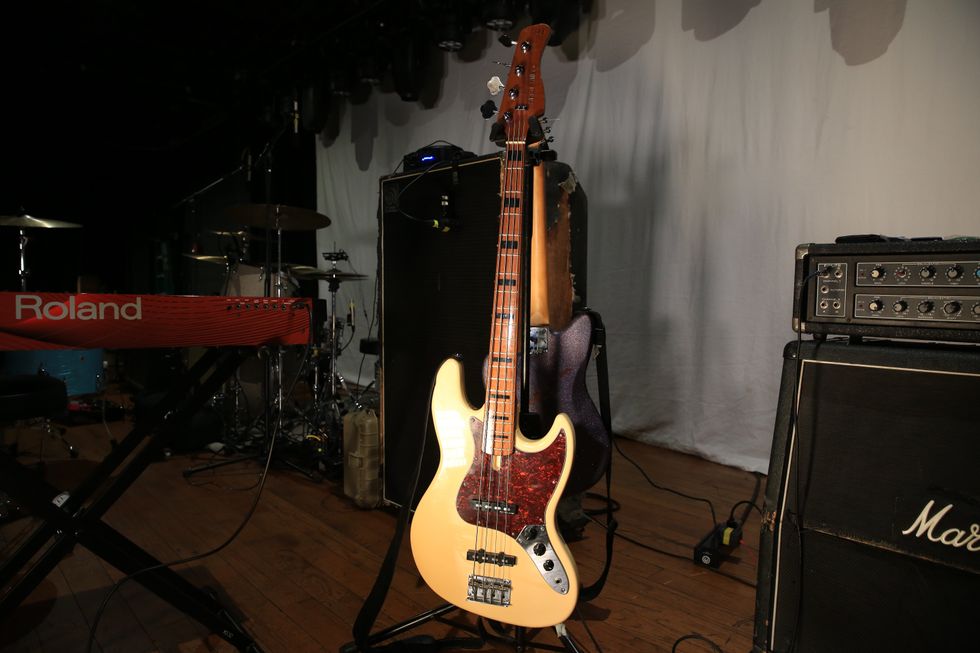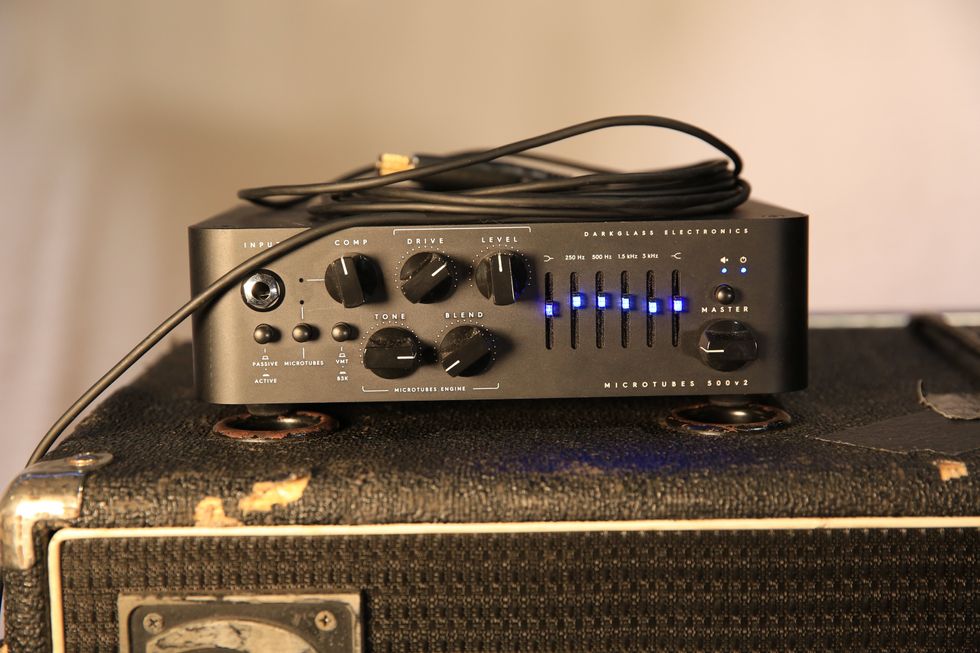Recorded direct into Avid Mbox into Logic X.
Clip 1: Neck pickup soloed. Treble rolled completely off.
Clip 2: Bridge pickup soloed. Slight bass boost past middle click. Slight treble cut from middle click.
Clip 3: Both pickups engaged. Slight bass boost past middle click
RatingsPros:Great looks, versatile, original design. Cons: Weight and balance may be an issue for some. Limited access to upper frets. Street: $1,159 Warwick RockBass Idolmaker warwickbass.com | Tones: Ease of Use: Build/Design: Value: |
A few years ago, I walked into Warwick’s Nashville showroom with one of my favorite guitarists in town. When he tried out the company’s Idolmaker guitar for the first time, the instrument floored both of us with its immediate shimmer, punch, and evenness. I loved the body shape and hoped there would one day be a bass version. Well, my wish initially came true when the company launched Custom Shop and Masterbuilt versions of the Idolmaker bass, but both were priced several thousand dollars too high for my taste. That all changed when Warwick unveiled a more approachable China-built RockBass version at NAMM this year, so my hopes were quite high when an Idolmaker arrived at my house for a look.
Strike a Pose
The Idolmaker’s gloss-black body paint and flat-black headstock finish both contribute to the impression this bass was made to rock. At first glance, the Idolmaker looks longer than most 34"-scale basses, which adds even more to its runway looks. There is quite a bit of extra body behind the bridge, which isn’t such a common feature on many bass guitars.
When I picked up the Idolmaker, my first takeaway was that tight, solid Warwick feeling that’s known to bleed over to their more affordable line of instruments. That said, it is not light. The Idolmaker weighs about 9 pounds, so playing it for a multiple-hour bar gig would be a challenge for me personally, since it also rests a little off balance—due to its quite heavy mahogany body.
That aside, the Idolmaker offers a number of cool finds. The curve on the bottom side of the body is very attractive, as is the layout of the four controls that are lined up in a slightly bowed row pattern to match it. The bass also sports Warwick strap locks, which work seamlessly with the existing Dunlop hardware on all my straps. And the company’s two-piece bridge, where the saddles are located on a different component than the actual tailpiece, looks both original and sleek.
When I switched my attention to the 3-piece laminated maple neck, I was impressed with its construction and slender ekanga-veneer stripes. The thin coating on the back of the neck provides a broken-in feel and makes the bass incredibly easy to play. There was some slight fretboard buzz on our test bass around the 12th fret of the 1st string, especially when bending notes. But knowing Warwick and that the bass had just come out of a shipping box, I think it’s safe to assume it’s not a common issue for this model.
Magic in the Polepieces
I’m a fan of the Idolmaker’s MEC vintage single-coil soapbars, which are the same pickups in the RockBass Star Bass I own. The big chunks of chrome with large, flathead-screw polepieces in a contrasting copper/bronze color is a cool look.
String-to-string balance that is less than perfect will quickly turn me off when I’m shopping for a bass, no matter how great the instrument sounds and feels. I’ve been known to adjust regular P- and J-style pickups to extreme angles to achieve evenness, so I really appreciate the individually adjustable polepieces on the MECs. It took me less than three minutes with a screwdriver to get a punchy, even tone to my personal liking out of all five strings.
Speaking of tone, it’s easy to attain that midrange growl Warwicks are known for. When the pickup-blend control is set just slightly favoring the bridge pickup, the bass delivers vintage warmth and boom laced with a modern growl. It’s a true, softer version of a classic Warwick tone, and this specific setting provided a cocktail of sounds I haven’t heard from many other pickups or basses.
Thanks to the pickups and its build in general, the Idolmaker can also sound almost like a semi-hollow, short-scale bass with just the front (aka “woofer”) pickup engaged, which is a great party trick of sorts for a bass that sports more of a hard-rock visual. Soloing the bridge pickup provides a convincing growl that sounds slightly beefier than a non-soapbar bridge pickup would by itself in a more standard Jaco-type setting. And cutting just a little top end on the onboard preamp noticeably increases that growl.
The Verdict
The Idolmaker bass is a versatile axe with great looks and a tonal arsenal that will likely both impress and surprise some players. I’d feel absolutely comfortable taking this bass to a recording session where I had to cover many sounds with just a few instruments. The Idolmaker delivers punchy, even tone without losing vintage soul and warmth in the low end. Players who think Warwick only does a certain type of tone will do themselves a favor by taking this Idolmaker for a spin.




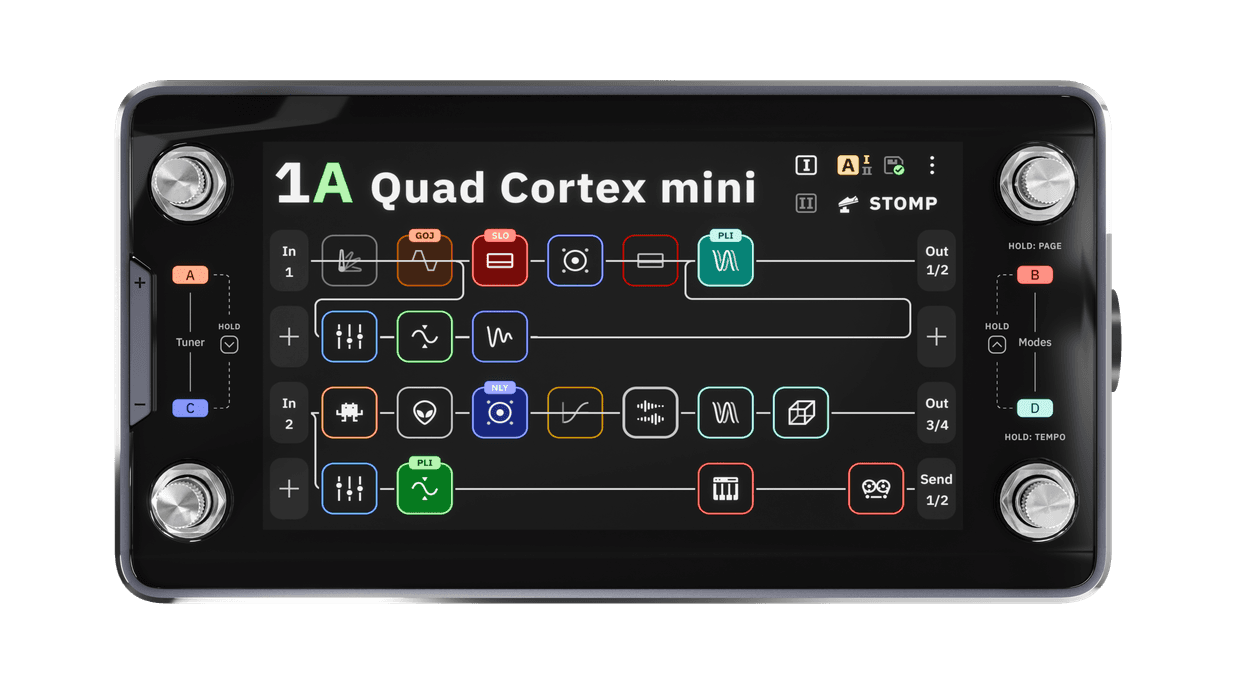
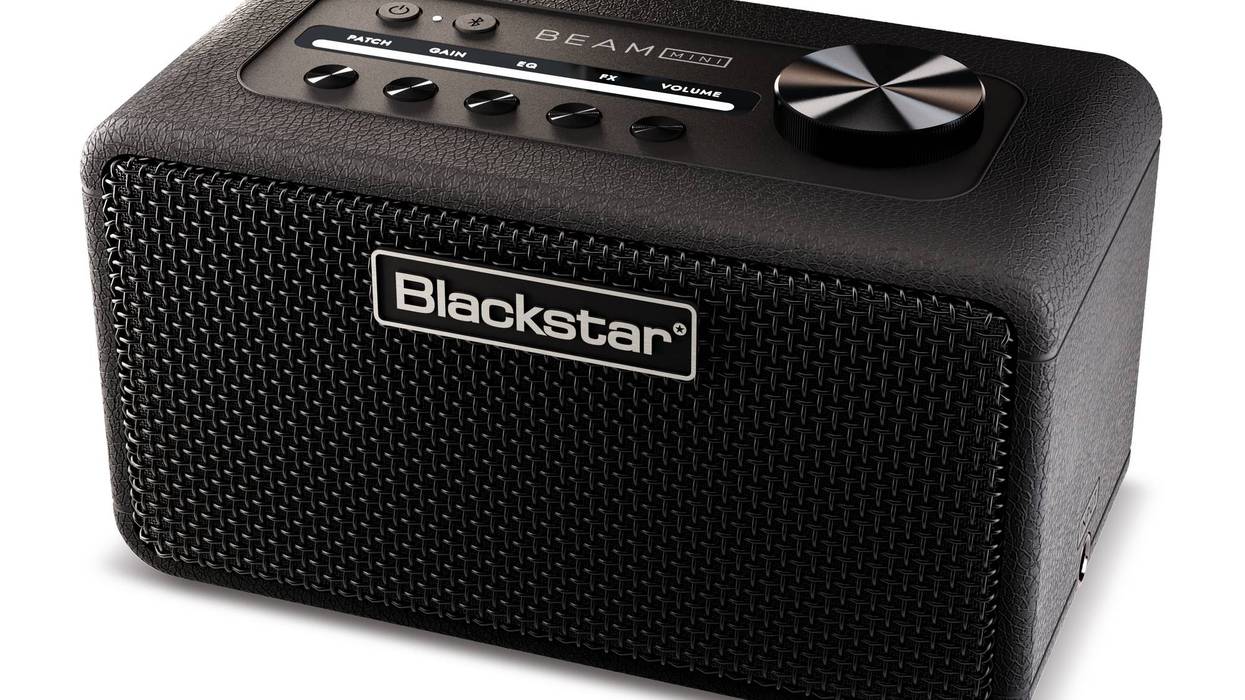
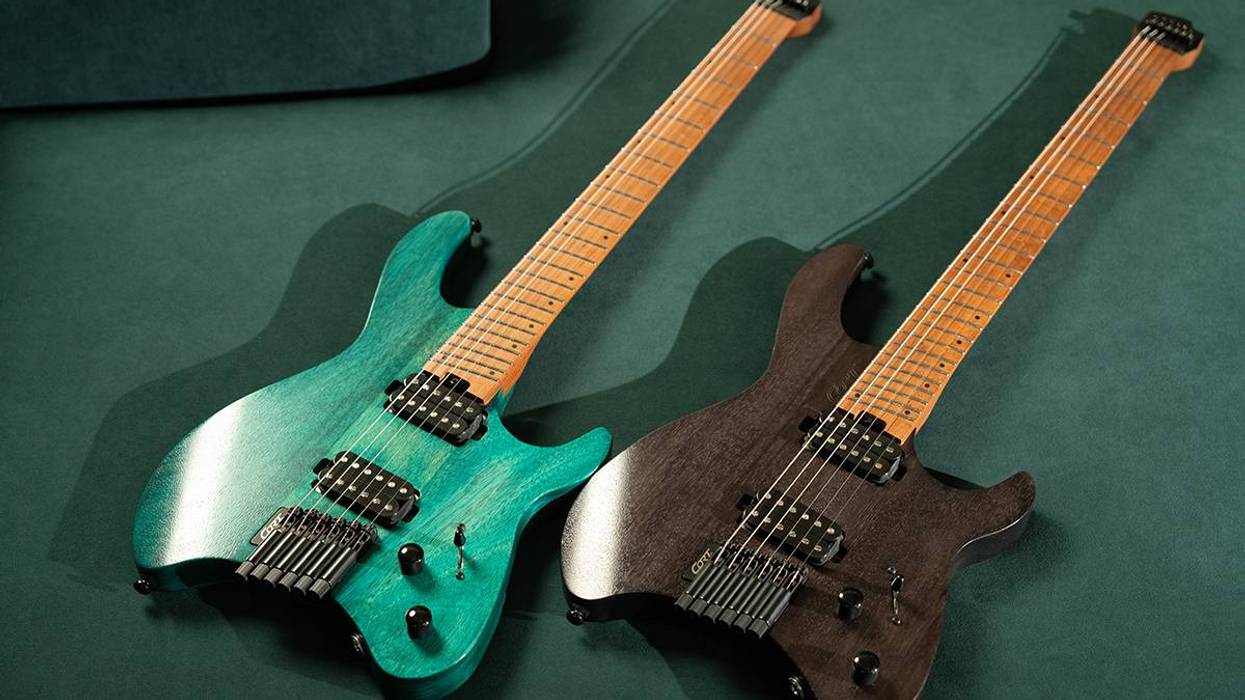

![Rig Rundown: AFI [2025]](https://www.premierguitar.com/media-library/youtube.jpg?id=62064741&width=1245&height=700&quality=70&coordinates=0%2C0%2C0%2C0)












 Shop Scott's Rig
Shop Scott's Rig
